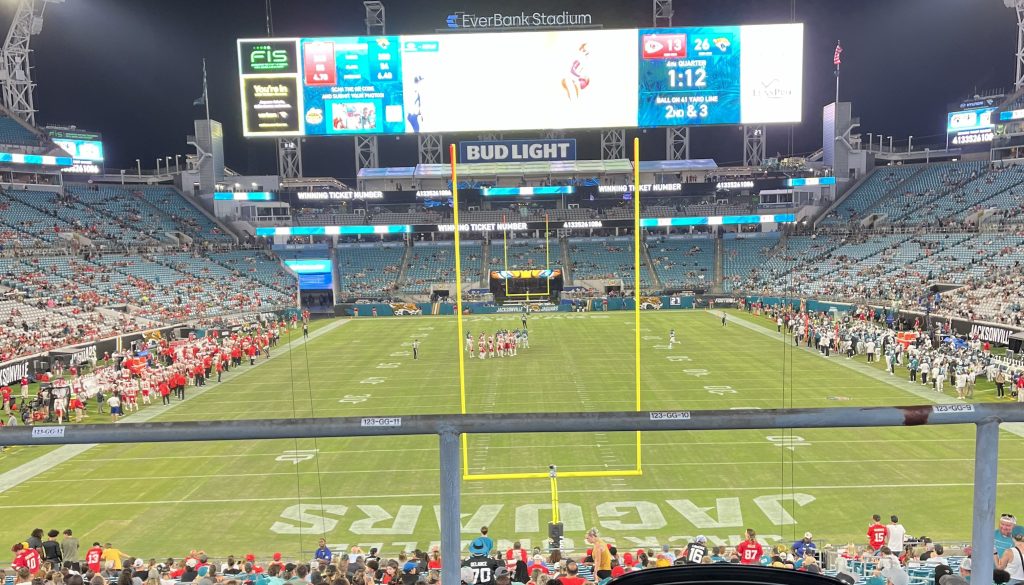
As the Orlando sport industry continues to thrive in popularity, the environmental impact on large-scale events has become impossible to ignore. From mountains of waste left after the game to the carbon emissions generated by fan travel, sports events are a major contributing factor to environmental deterioration. It’s time for sports teams to take sustainability seriously, and the NFL is in a prime position to lead the change.
Working as part of the Guest Experience Team for the Jacksonville Jaguars, I’ve seen firsthand the scale of game day operations. The gates open and thousands of fans pour into the stadium, enjoying food and beverages served in single-use packaging. When the game comes to a close, the stadium is filled with plastic cups, wrappers, and other waste. Across the league, stadiums are facing similar issues, creating excessive waste each season. While this is a daunting challenge, an opportunity arises for teams to make a lasting impact.
Stadiums across the country should take inspiration from other venues, like the Mercedes-Benz Stadium, as a model for sustainability in sports infrastructure. The Falcons’ Stadium has introduced many forward-thinking initiatives that aim to reduce their carbon footprint. These include options such as advanced water conservation systems minimizing waste, renewable energy sources that power the stadium through solar panels, and a widespread use of energy-efficient LED lighting. Additionally, the stadium embraces public transportation, making it more accessible for fans and reducing car emissions. Vaughn Berhoff (‘28), a student at Georgia Tech, said, “The Mercedes-Benz Stadium has a well-built feeling to the structure. The Atlanta Falcons took the time to make it environmentally friendly. Knowing this information, I would definitely go back.” If more professional teams adapted to these practices, it could cause a ripple effect, leading to more teams and sports following in their footsteps.
The NFL has a unique opportunity to partner with environmentally conscious organizations to educate the fans on sustainability. Game day promotions could play a pivotal role, offering fans rewards for recycling and adopting other eco-friendly behaviors. Digital campaigns during games could feature the league’s efforts and commitment to reducing their carbon footprint. “I have been to three NFL games and saw very little sustainability being practiced, other than the occasional over-priced reusable cups and recycling bins,” said Dorian Cabalo (‘26), a student at Rollins College. “I think that offering incentives and promotions would encourage fans to engage in more sustainable practices.” Leagues working to improve the green initiatives could make fan experiences better knowing that the NFL is working to make a cleaner world. Incorporating sustainability into their outreach, NFL teams could not only improve the environment, but also strengthen the connection with fans.
By embracing sustainability, sports teams can play a crucial role in shaping future generations living in a greener world. It’s time for teams to rise to the occasion because the stakes are far too high to be sitting on the sidelines.
The opinions on this page do not necessarily reflect those of The Sandspur or Rollins College. Have any additional tips or opinions? Send us your response. We want to hear your voice.

















Comments are closed.